

Did you know that some international schools in Egypt are challenging top US institutions for expat desirability? With growing reputations and unique benefits, these schools are becoming the unexpected choice for countless families.
This topic matters more than ever as global relocations surge and education choices become crucial for expats seeking value and quality not just in America, but worldwide.
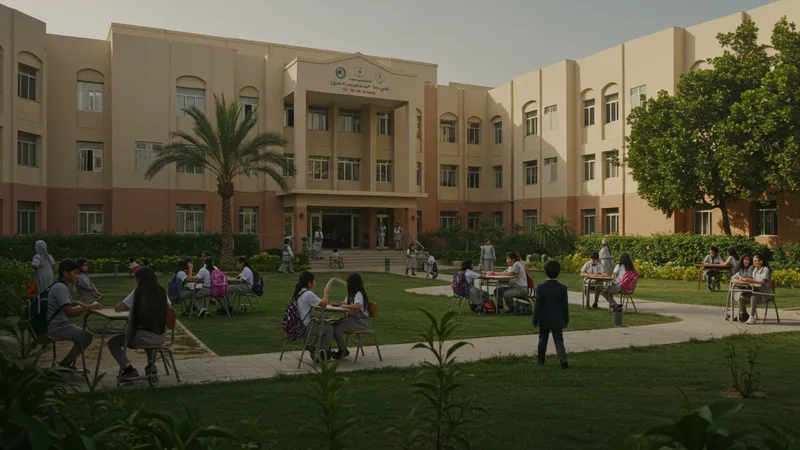
Surprisingly, parents are discovering that international schools in Egypt offer a level of personalized education that rivals US standards. Small class sizes and dedicated faculties create nurturing environments for children. But that’s not even the wildest part…
The cost efficiency of Egyptian schools could redefine the value equation for expat families. Offering competitive curriculums at a fraction of US prices, these institutions provide a surprising financial relief without sacrificing quality. But what happens next shocked even the experts…
International schools in Egypt have been on a remarkable upswing in popularity. More families now view these institutions as viable alternatives to renowned US schools. The appeal? Significant savings and a tailored educational approach. What you read next might change how you see this forever.
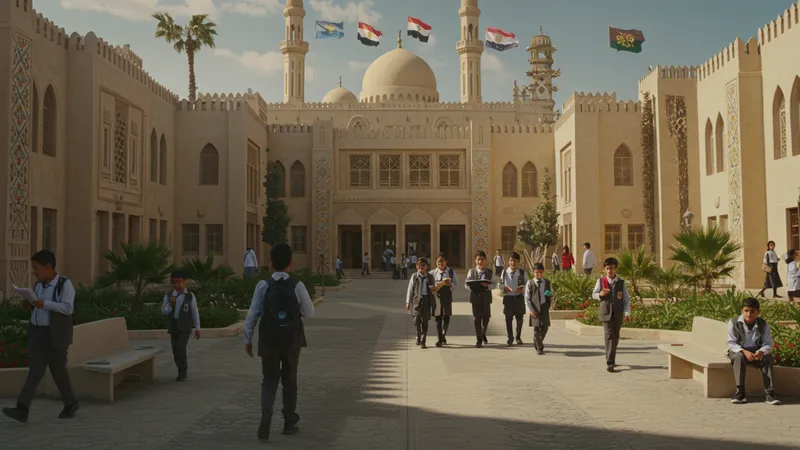
Egyptian schools offer curriculums that integrate both local culture and global standards. This dual focus attracts expats who wish to enrich their children’s perspectives without losing their cultural roots. But there’s one more twist…
Despite their rising acclaim, Egyptian international schools often go unnoticed in global rankings—yet parents rate satisfaction highly. This paradox challenges common perceptions of educational value and quality. But what about the teaching methods?
Most expat students in Egypt are immersed in English-language curriculums complemented by traditional Egyptian studies, a blend that fosters holistic development. But there’s another compelling factor to consider…
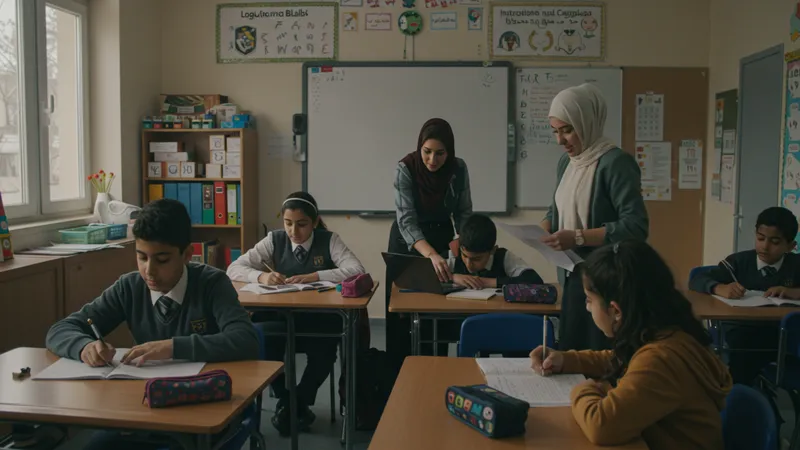
When it comes to curriculum rigor, Egyptian international schools often match or exceed US standards. The International Baccalaureate (IB) program, for instance, is widely offered and respected globally. Yet, few realize how tailored these curriculums are to a child’s individual strengths. But there’s more to this story…
American expats are often surprised by how adaptable and personalized Egyptian education can be. Enhanced teacher-student interaction leads to customized learning experiences. But how does this impact academic and extracurricular outcomes?
Across Egypt, international schools excel in fostering balanced academic and life skills. Many feature state-of-the-art facilities and cutting-edge technology integration, giving students practical skills for the modern world. But wait until you hear about the results achieved…
Despite the quality, the tuition costs at these schools typically remain half of those in the US. Parents continuously express astonishment over the level of education offered for such financial value. Would you believe there’s still more to uncover?

Teacher quality in Egyptian international schools is another standout feature. Many educators possess international certifications and bring diverse global perspectives into the classroom. However, the untold merit lies in their commitment to student success…
These teachers often have experience in both local and international settings, allowing them to blend different educational approaches effectively. Such a synthesis often yields creative solutions to common teaching challenges. But is experience all that matters?
What sets these educators apart is their flexibility and passion. Teachers frequently go beyond standard requirements to foster critical thinking and adaptive learning skills in students. Yet, the biggest surprise might be their community involvement…
Cross-cultural exchanges are frequently facilitated by passionate instructors, enriching the educational experience and widening students’ global awareness. What unfolds next in this enriching journey is truly remarkable.
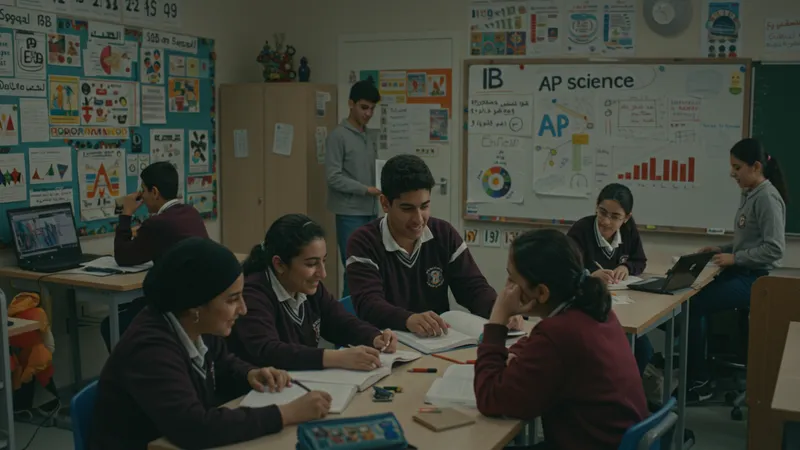
Egyptian international schools come packed with competitive academic programs such as International Baccalaureate (IB) and Advanced Placement (AP), which are often benchmarks for university entry globally. But the real secret lies in their application…
The flexibility of choice in enrolling in both IB and AP courses means students are not restrained by typical educational pathways, allowing for more personalized learning routes. But here’s the catch – how do students fare compared to their American counterparts?
Success stories abound as Egyptians gaining entry to top-tier universities worldwide increase annually. This trend suggests Egyptian international schools offer competitive preparatory platforms just as credible as US-based programs. The implications don’t just end here…
The balance between academically rigorous programs and a nurturing environment results in well-rounded students who excel both inside and outside the classroom. Get ready, because what comes next is compelling.

One underestimated aspect of Egyptian international schools is their emphasis on social and cultural integration. Students learn from a multicultural cohort, which broadens their empathic understanding and global viewpoints. Yet, what’s astonishing is the school community impact…
These schools frequently host cultural festivals and global awareness events, which help students appreciate diversity while maintaining a strong sense of their own heritage. But beyond festivals, there’s an even greater attraction…
The mutual respect fostered encourages collaboration between families of diverse backgrounds, creating an irreplaceable community feel. For expat parents, this offers immense support networks and valuable friendships. But you need to see what this means for student life…
Exposure to diverse traditions and customs shapes student resilience and adaptability, preparing them not just academically but for life. Let’s delve further into how this affects their overall development.
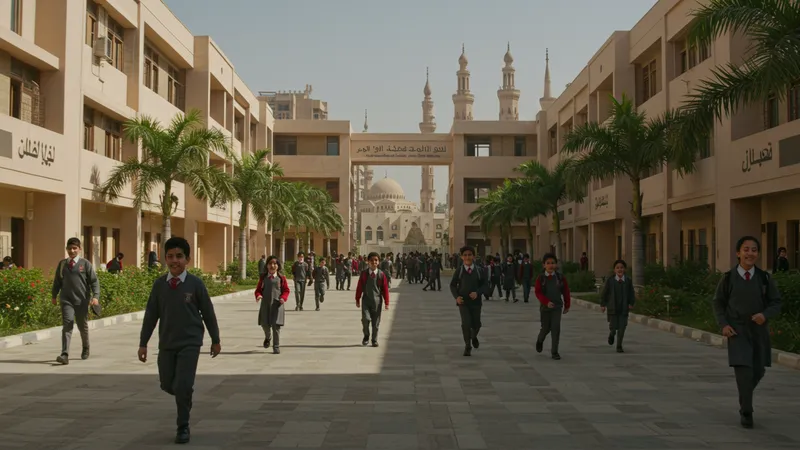
International schooling in Egypt is remarkably cost-effective for expats concerned about educational budgets. Compared to US schooling expenses, Egyptian alternatives often yield the same high standards but at a reduced cost. Some even call it the real value-for-money option…
This doesn’t only concern tuition fees. Related costs like textbooks and uniforms are also notably lower, but what will surprise you even more are the supplementary benefits…
Scholarships and financial aid often form part of Egypt’s harmonious approach to comprehensive international education. This approach diversifies options and enhances accessibility. But this is merely one facet…
When assessing total expenses, the advantages of school-provided transportation and catered meals become apparent as practical cost-saving strategies. There’s still another dimension to this financial perspective…
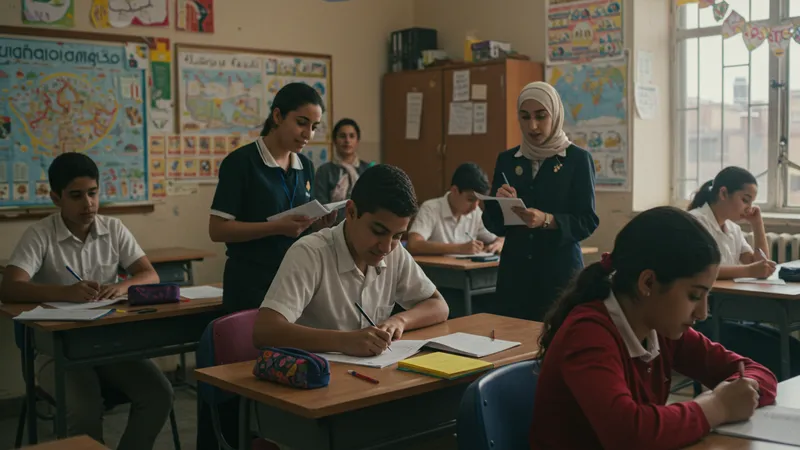
Language acquisition at Egyptian international schools gives students a distinct advantage. Many institutions provide opportunities to learn Egyptian Arabic alongside other international languages, equipping students with linguistic dexterity rare in today’s schools. But this is just the surface…
Becoming bilingual or trilingual in such environments boosts cognitive abilities and enhances multicultural competence—traits essential in today’s globalized world. The payoff? Students proficiently navigate cultural nuances better than monolingual peers. How does this play out practically?
These linguistic skills offer practical benefits as students interact comfortably in shared global spaces. Whether in business negotiations or cross-border collaborations, they have a key competitive edge. But the unpredictability doesn’t stop there…
Long-term implications show that students with these linguistic capabilities are more adaptive and swift learners, traits crucial for future success. What’s next will make even seasoned educators rethink linguistic paths…
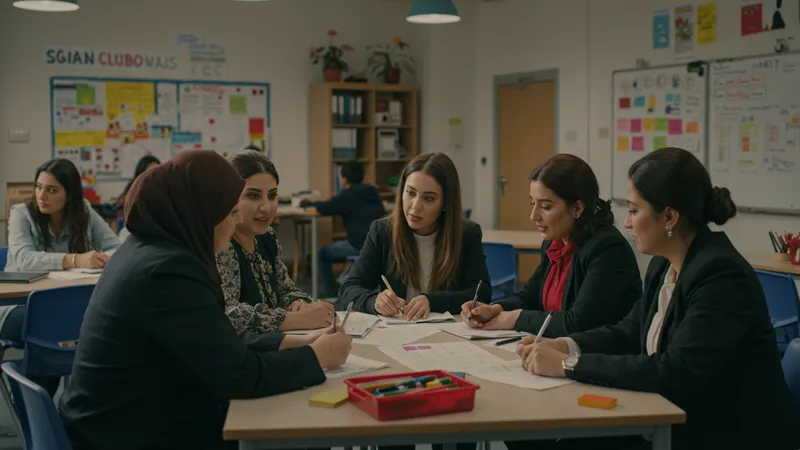
Parental involvement in schools is known to elevate student success rates, and Egyptian international schools emphasize this involvement exceptionally well. The schools actively promote parental engagement in school activities. Yet, the real strength lies elsewhere…
Through frequent and structured engagement opportunities, parents become integral to shaping curriculum and extracurricular activities. This joint ownership of the educational process fosters a unique bond. What unexpected benefits come with this?
Such relationships give parents firsthand insight into their children’s education journey and a chance to influence their academic environment positively. But the surprise doesn’t end—it extends into emotional and social realms.
Improved communication between home and school can enhance a child’s emotional development and academic drive. Parents often voice surprise over their children’s maturity gained through these enhanced support structures. But what about the role of technology in enabling such dynamics?
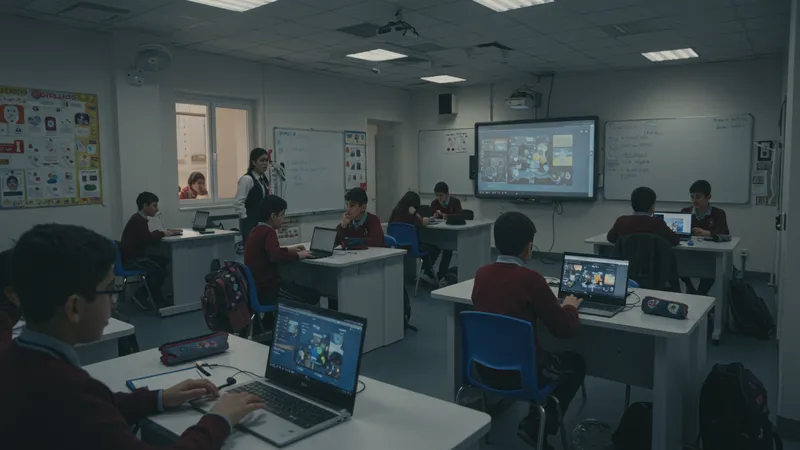
E-learning platforms have become indispensable in today’s education landscape, and Egyptian international schools are no exception. By employing advanced technologies, they craft forward-thinking learning experiences. But what’s particularly astonishing is…
This integration of technology personalizes learning paths, helping students engage with material in diverse and innovative ways. While these tools boost academic performance, they hold another intriguing promise…
Such advancements prepare students for future job markets defined by technology and innovation. But the benefits of technology in education often stretch beyond typical learning boundaries. What unexpected advantages might emerge?
Facilitating online international collaborations develops students’ readiness for a connected world, enhancing networking skills and confidence globally. This training molds unyielding perseverance and creativity. Still, one last compelling revelation remains…
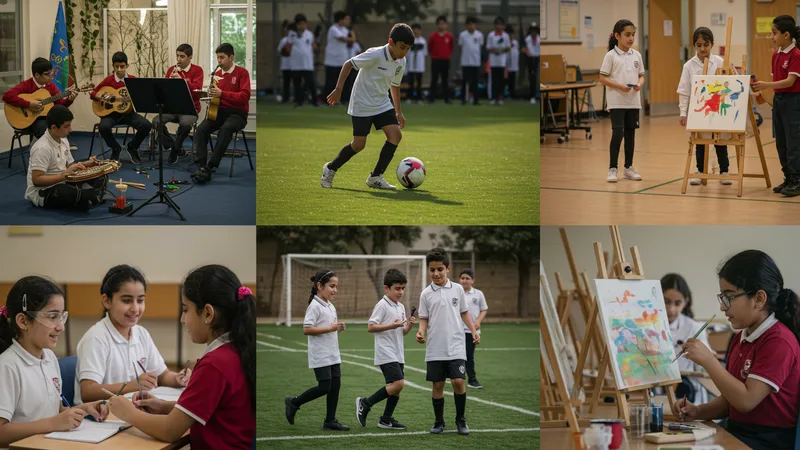
Beyond typical academic pursuits, Egyptian international schools offer rich extracurricular activities that cultivate student talents. The real marvel is how these programs impact future success…
From music and sports to science clubs and arts, students explore diverse interests, often unlocking hidden talents that contribute to holistic development. But the repercussions of these activities are even more profound…
These programs nurture leadership abilities and teamwork skills, which not only boost college applications but also instill self-confidence and resilience. Yet, something even more striking lies beneath these victories…
The experiences gained meet rigorous college and workforce demands, preparing students to excel in varied fields. Students emerge with transferable skills that last a lifetime. But there might still be another question on your mind…
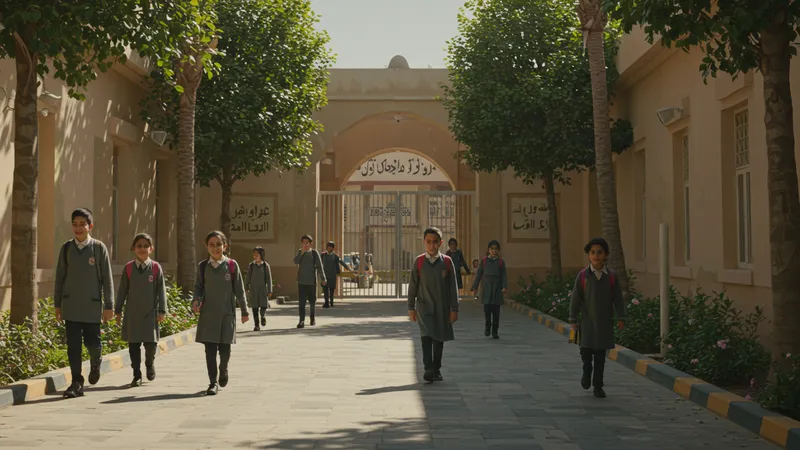
Safety is a pressing concern for parents worldwide. In Egypt, many international schools offer secure campuses that rival those in the US. Yet, the most impressive aspects of safety might still surprise you…
In addition to manifest safety measures like surveillance and controlled access points, schools focus on fostering emotionally supportive environments. But this dual layer of security isn’t all…
The commitment to addressing emotional well-being through counseling and supportive services ensures holistic safety. It’s a comprehensive approach that delivers unparalleled protection. But is it foolproof against emerging challenges?
Such strategies empower students to thrive in nurturing environments where their well-being is central to educational priorities. Families consistently express deepest gratitude for such mindful structures. But what about student performance impact?
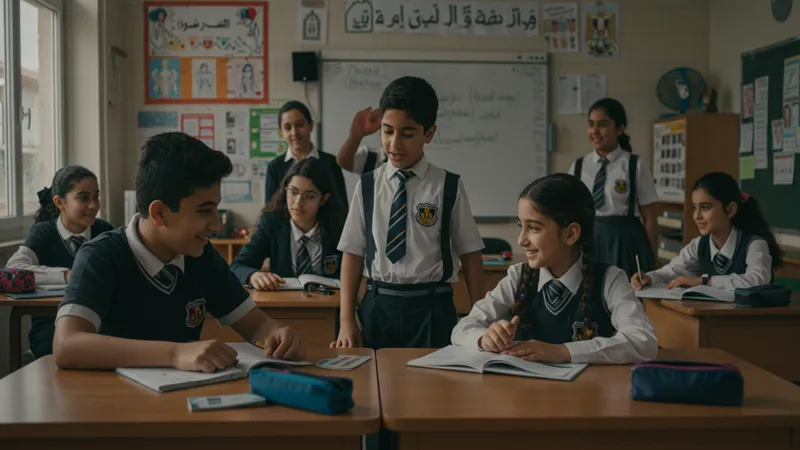
At first glance, the benefits of Egyptian international schools may appear almost fantastical. Expats may question the realism of obtaining such value. But beneath the surface lies unmistakable authenticity…
Through balanced approaches merging high-quality education with innovative social and cultural frameworks, these schools authentically provide value. Yet, the most convincing evidence resides in alumni success stories…
Ambitious, globally-minded graduates emerge well-equipped for life’s challenges, worldwide admissions, and impactful careers. Still, there’s skepticism about the long-term sustainability of this model. But does evidence contradict concerns?
Surprisingly, growth trends indicate expansion rather than contraction, promising sustained excellence and opportunity for future expat families. Hence, conclusions derive from facts rather than fiction. A piercing question remains—how does Egypt’s educational landscape redefine itself?
As the educational opportunities unfold, Egyptian international schools offer insights that redefine global education standards, challenging old paradigms. The journey through these institutions unveils perspectives the whole world might benefit from adopting. Share these revelations with expat families considering educational paths.
A final thought: these schools illustrate potential for other countries to benchmark against—why settle when transformative educational experiences await? Take action by exploring, sharing, and joining the dialogue for a globally enriched future.